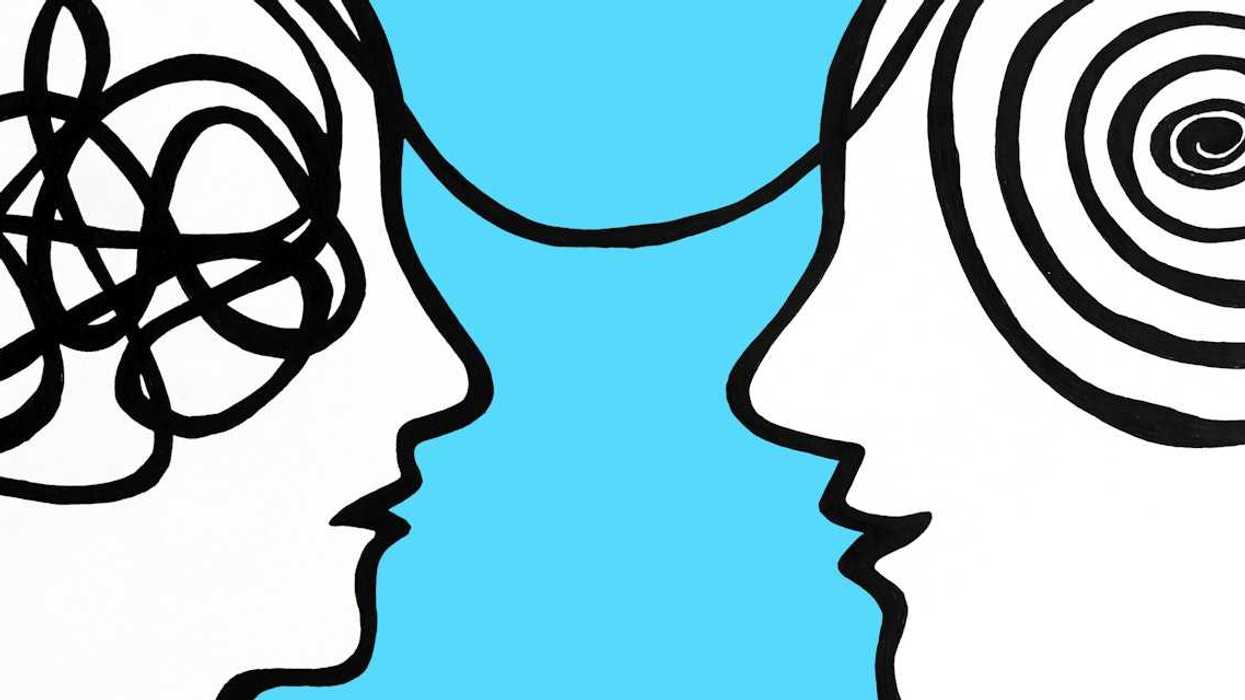Maybe you see yourself as a fiery personality. You feel a lot. There's a need to express yourself in the hopes of keeping your sanity. Though some call this passion, one professional therapist has some insights into how we manage our emotions and what that says about our emotional maturity.
Jeffrey Meltzer (@therapytothepoint), a licensed therapist and TikTok creator focused on mental health content and awareness, posted a video explaining the '6 signs of Low Emotional Intelligence.' For some people, their actions are almost always dictated by the way they feel. Letting one's feelings determine actions is a risky behavior and sign of low emotional maturity.
Emotional intelligence is described as "the ability to recognize, understand, and deal skillfully with one's own emotions and the emotions of others," according to the Mental Health America. The word "skillfully" suggests emotional intelligence is a tool we can all improve upon. If one's emotional intelligence or "EQ" is low, there are things to do to increase it. Meltzer shares the signs of low EQ, and how to deal with each one:
@therapytothepoint 6 Signs Someone Has Low Emotional Intelligence #emotionalintelligence #emotionallyintelligent #emotionallyimmature #emotionallyimmatureparents #emotionallyunavailaible #emotionalneglect #emotionalmanipulation
1. They need to be right
Some people just need to be right, even when they are obviously wrong. He explains that their ego takes over their reality. This process completely ruins any chance of connection.
The good news is humility is a trainable trait. Learning how to acknowledge incorrect beliefs and ideas are what psychologists call, "intellectual humility."
2. They can't take feedback
There are lots of people who don't like criticism. Instead of reflecting on what is being told to them, they fight back and get defensive. He states that feedback can actually rattle their whole self image.
A healthy option for looking at feedback is that it's actually a high form of praise. When people take the time to offer suggestions to improve in a certain area, they are invested in your advancement and elevated performance. It's a statement of value.
3. They are highly reactive

Some people have difficulty pausing before responding. Whatever they feel, they immediately respond without taking the time to evaluate what's been said. Meltzer says, "It's not passion. It's poor self control."
Implementing a 'pause' before responding is an invaluable tool used by emotionally intelligent people. It gives you an opportunity to better understand and reflect upon what's been said.
4. They don't apologize or it's insincere
People that perform performative apologies are unaccountable and completely insincere. Meltzer says, "A real apology is owning the damage that was caused, not just trying to end the conversation."
Finding the courage to own our behaviors and to be accountable is a game changer. When we become responsible for our actions, it no longer shows weakness for doing wrong. It shows strength for admitting it.
5. They constantly cross boundaries
When people say something hurtful or invade your personal space, it's uncomfortable and sometimes even emotionally painful. Then, instead of apologizing, they might accuse you of being overly sensitive.
Meltzer states, "Emotional intelligence means knowing where the line is and actually respecting it." These lines are critical to building healthy relationships. They help each individual protect their own sense of self and well being.
6. They make every conversation about them

When you share something important, even vulnerable, and the person you're talking to shifts the conversation to themselves, it can be frustrating. Interrupting and comparing your experience with their own isn't about bonding and sharing the experience. They probably aren't really listening to you. These people are just waiting for their own turn to speak.
Being a good listener builds intimacy. Wanting a person to know they are being heard is more important than having a good answer for their situation.
If you recognize these six signs in yourself or others, don't fret. There are ways to make you emotional intelligence, and thus your relationships, much better. Talk to a therapist, do your research, and cultivate empathy.


















 Regular exercise and a balanced diet are cornerstones to aging well.
Regular exercise and a balanced diet are cornerstones to aging well.


 Oral Wegovy pills were approved by the Food and Drug Administration in December 2025 and became available for purchase in the U.S. in January 2026.
Oral Wegovy pills were approved by the Food and Drug Administration in December 2025 and became available for purchase in the U.S. in January 2026. Despite the effectiveness of GLP-1 drugs for weight loss, there is still no replacement for healthy lifestyle patterns, including regular exercise.
Despite the effectiveness of GLP-1 drugs for weight loss, there is still no replacement for healthy lifestyle patterns, including regular exercise.


 What foods would you pick without diet culture telling you what to do?
What foods would you pick without diet culture telling you what to do?  Flexibility can help you adapt to – and enjoy – different food situations.
Flexibility can help you adapt to – and enjoy – different food situations.
 Anxious young woman in the rain.Photo credit
Anxious young woman in the rain.Photo credit  Woman takes notes.Photo credit
Woman takes notes.Photo credit